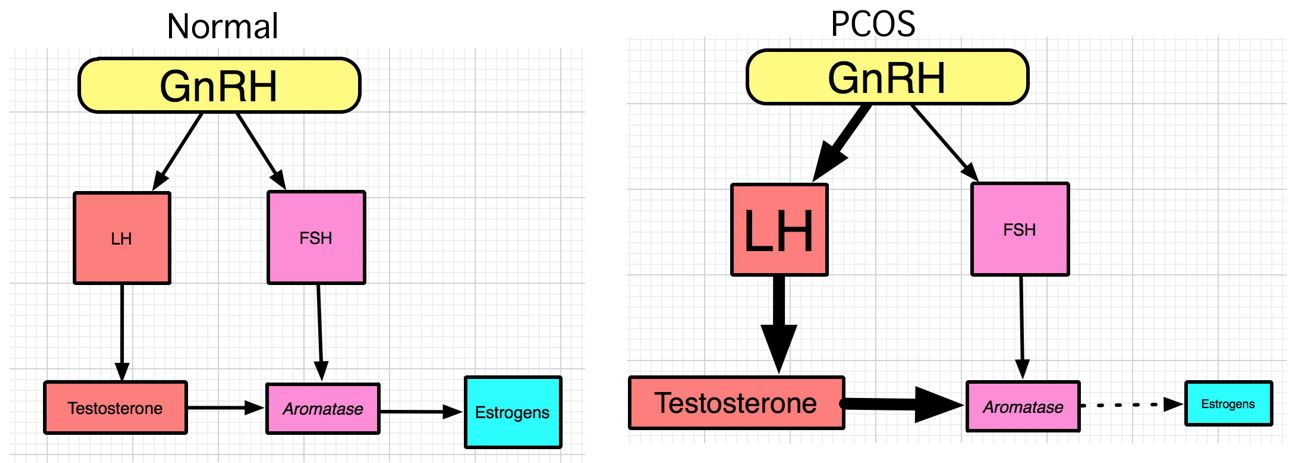WHAT TO KNOW ABOUT PCOS, Michael Silverstein, MD (Digital)

Polycystic ovarian syndrome, or PCOS, is an incorrectly named and poorly misunderstood disorder that affects about 10 million women world-wide. Although not much is known about it and its causes, it’s important to know about it and what to expect if your gynecologist suspects you’re living with it. Although it can primarily affect your quality of life, it can affect many other areas of your health like fertility and emotional health. Here’s what to know about this syndrome and your treatment options with your gynecologist.
What is PCOS?
PCOS is a defect in the production of ovulatory hormones in women. It does not inherently mean that you have cysts on your ovaries if you have PCOS. Rather, it means that not enough of certain hormones are being produced to contribute to ovulation (where an egg is emitted from the ovaries with the intent of fertilization).
Specifically, it means that an over-secretion of Luteinizing Hormone (LH) is happening, resulting in excess testosterone. Excess testosterone means that Follicle Stimulating Hormone (FSH) can’t effectively convert the testosterone to estrogens, which play an important role in ovulation.
What causes PCOS?
Although PCOS is caused by excess androgens, or male hormones, it’s not known what causes this excess in certain women. Many experts think genetics plays a role in the presence of PCOS, as well as insulin resistance. For this reason, it’s important to speak with the women in your family if you’re experiencing symptoms. However, there is still much study being performed on possible contributing factors like environment, certain medications, and lifestyle.
What are the symptoms?
Some symptoms that can be cause for an appointment with your gynecologist are:
- Hirsutism (hair grown in unsuspected areas)
- Difficult acne
- Menstrual abnormality (rare menses, too frequent menses)
- Weight gain
- Fatigue or sleep problems
- Hair thinning
- Infertility
- Mood changes
It can be helpful to keep track of these symptoms and discuss their frequency and severity with your gynecologist if you suspect something is wrong. PCOS primarily affects women during childbearing age, commonly in your 20s or 30s. However, PCOS can happen at any age after puberty is complete.
What are some treatment options?
It’s important to remember that ultrasounds shouldn’t be relied on when diagnosing PCOS— after all, ovarian cysts are more so a result of PCOS rather than the cause of it. Rather, your gynecologist can perform a blood test to check for conditions that present similarly to PCOS. Then, your gynecologist can recommend your best treatment options. Often, hormonal birth control can effectively help to regulate your menstrual and hormonal cycles. However, there are many other medications that can help regulate your body’s hormone production, and your gynecologist can recommend the right one. Since general health, fertility, and contraception are all affected by PCOS, the diagnosis and treatment are essential.
Schedule an Appointment
PCOS can be difficult to live with and difficult to diagnose, so it’s important to partner with a knowledgeable gynecologist who can assess your symptoms and recommend the right steps. To meet with our expert team, contact our New York City office by calling or filling out our online form.

https://www.pcosaa.org/symptoms
https://www.womenshealth.gov/a-z-topics/polycystic-ovary-syndrome
Maternal Fetal Medicine blogs are intended for educational purposes only and do not replace certified professional care. Medical conditions vary and change frequently. Please ask your doctor any questions you may have regarding your condition to receive a proper diagnosis or risk analysis. Thank you!







